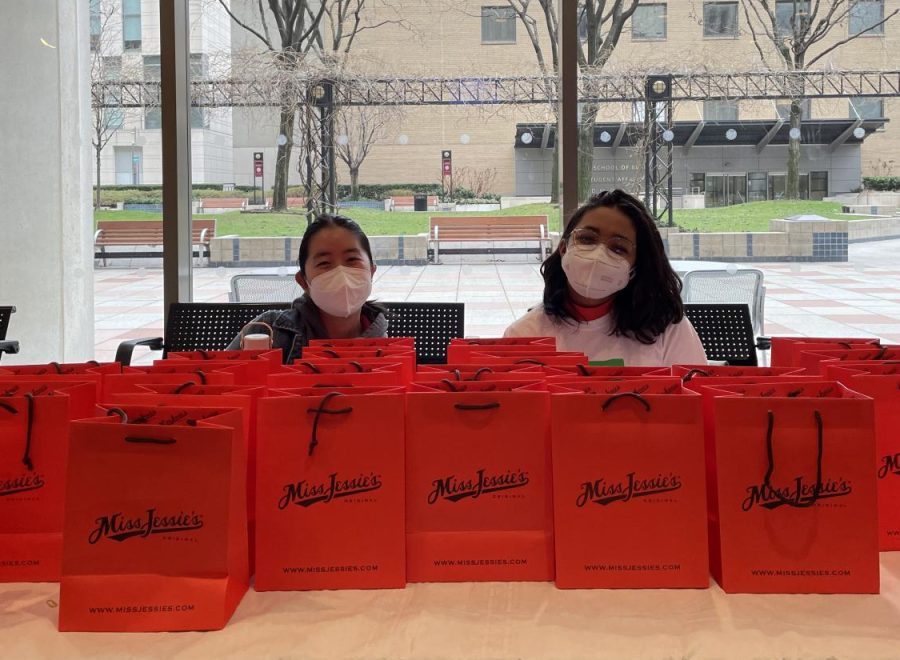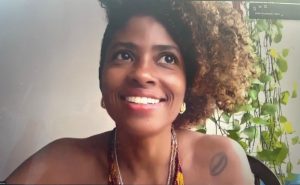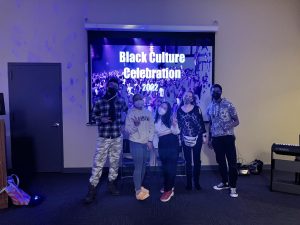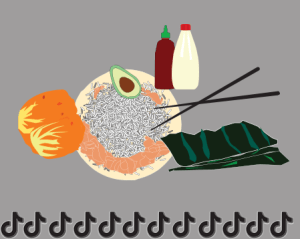Love Your Hair Panelists Discuss Journeys of Embracing Their Natural Hair
Office of Multicultural Affairs celebrates Black History Month with third annual ‘Love Your Hair’ Expo
The “Love Your Hair” expo was one of multiple events that the Black History Month Committee hosted in February.
March 3, 2022
In celebration of Black History Month, the Office of Multicultural Affairs’ (OMA) Black History Month Committee organized the third annual “Love Your Hair” expo panel to foster a conversation about the importance of Black hair expression on Thursday, Feb. 24.
The expo was an opportunity for panelists to share their experiences and hair journeys while also answering questions from attendees. Discussion topics included hair care routines and how the cultural significance of Black hair helps create and strengthen the concept of self-identity. The expo aimed to provide a safe space for healthy conversation and open up the larger conversation about the ways natural hair can be a source of empowerment for the Black community.
The panelists discussed their own hair journeys and stories from their experience with embracing natural hair. Panelists included Natalie Blair, Fordham College at Lincoln Center ’22; Laurie Lambert, associate professor in the African & African American studies department; Kristopher Little, resident director for first-year students; and Juan Carlos Matos, assistant vice president for student affairs for diversity and inclusion at OMA. The event was moderated by Lilibeth Ramos-Flores, Fordham College at Rose Hill ’17 and graduate intern for OMA.
“I loved that I’ve been able to have so many different hairstyles throughout my life.” Juan Carlos Matos, assistant vice president for student affairs for diversity and inclusion at OMA
Panelists expressed a shared sentiment about the importance of the journey that came from embracing their hair.
“I loved that I’ve been able to have so many different hairstyles throughout my life because if my hair was straight, I would not have been able to do half the things I have done to my hair and have it survive,” Matos said. Matos shared his experience and pictures of his different hairstyles through the years.
Similarly, Lambert shared her experience of straightening, growing and cutting her hair in the different phases of her life. Her change in hairstyles allowed her to fully embrace her Blackness confidently.
“I didn’t have that fear of straightening it or the awkward phase or things like that because I had that initial experience of going to college and that freedom of knowing what to do,” Lambert said.
They also shared how the pandemic affected their hair health. Little said the pandemic changed his hair care routine, as he used to get frequent haircuts. Panelists also noted the connection between stress and patterns in consumption and how they factor into hair growth and health. They shared how hair can show how healthy one is.
For some panelists, embracing Black hair meant embracing Blackness. Both Blair and Matos shared their doubts and experiences coming from multiracial backgrounds. Blair said growing up she didn’t know what to do with her hair. Her experience was part of a “process of self-affirmation of accepting Blackness, especially as a mixed individual.”
Blair pointed out that studying at Fordham helped her realize the importance of discovering and embracing her hair.
“Through my hair, I’ve been finding myself.” Natalie Blair, FCLC ’22
“Through my hair, I’ve been finding myself,” Blair said. “Just seeing the different ways people do their hair and hold their hair, in general, made me realize I can do different things with my hair.”
For Matos, it is a question of where he wants to step in and give space to this Blackness. “When my hair isn’t long, even my Blackness is questioned, even by Black folk themselves,” he said.
Matos also shared about his experiences in a professional field and how he is now able to confidently grow his hair to embrace and express himself.
“You’re moving beyond white-censored professionalism and you’re able to go sit in your comfortability,” Matos said.
Nevertheless, this year’s panel allowed for panelists to inspire others with their stories. “It’s been a journey in really educating myself on hair in general and embracing it and understanding how important it is, and making sense of that too,” Little said.
As part of the event, the Black History Month Committee gave away hair products sponsored by Black-owned businesses, including Canviiy, Miss Jessie’s and Rizos Curls.
















